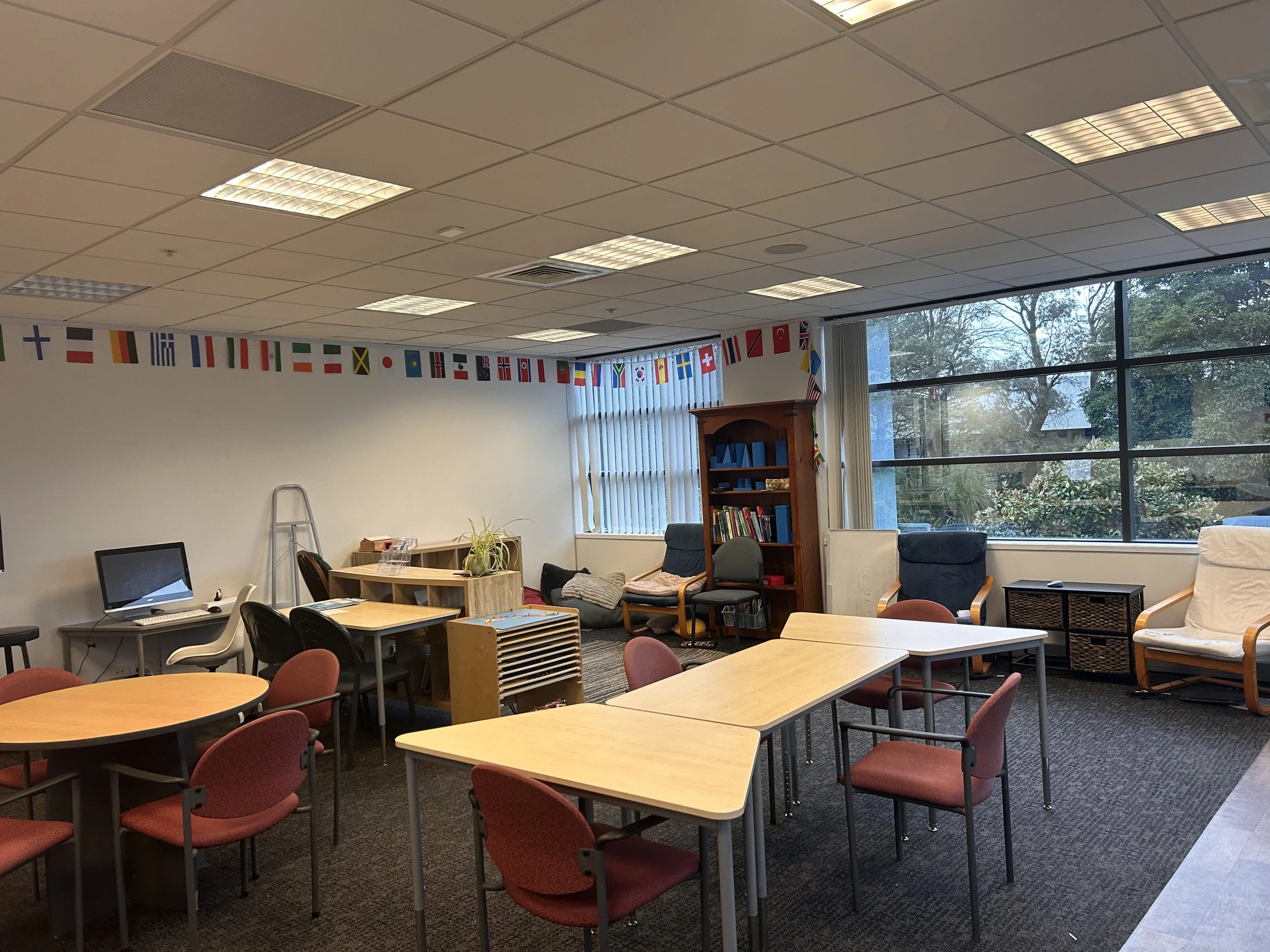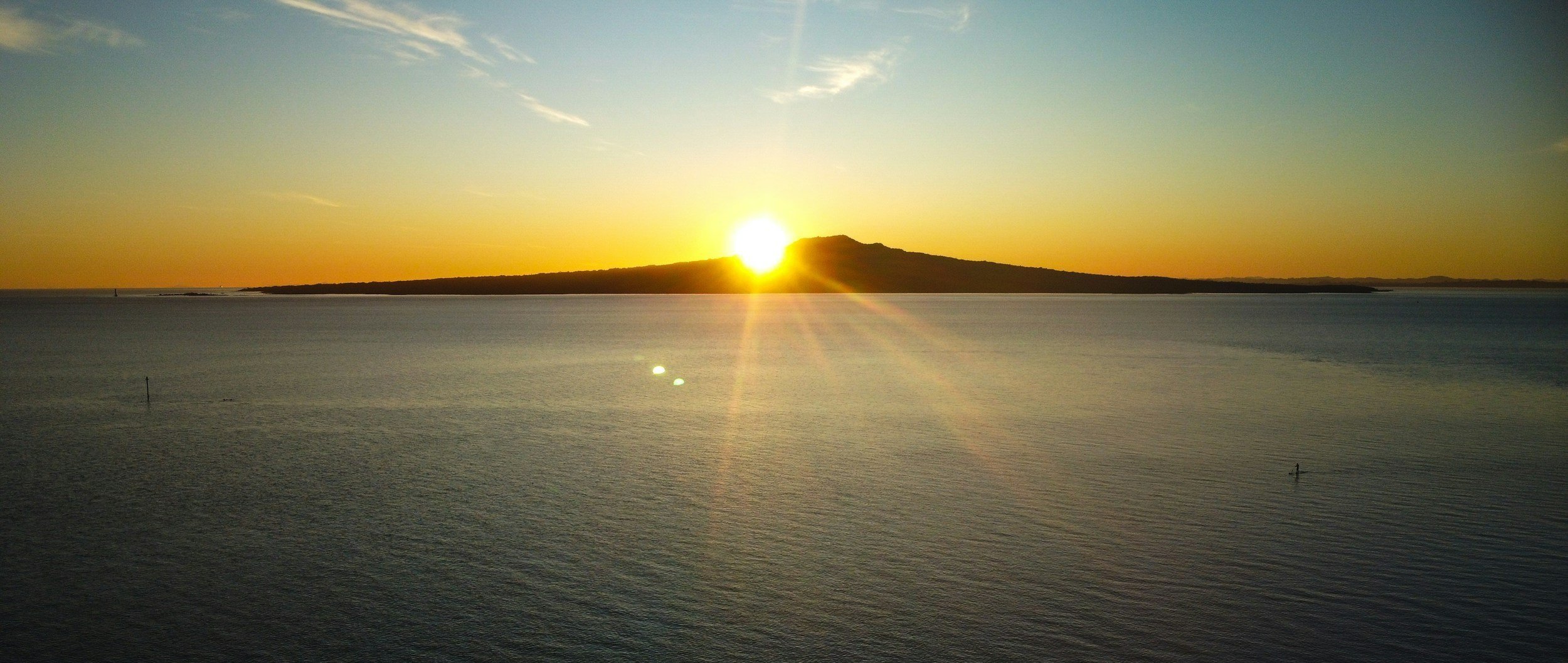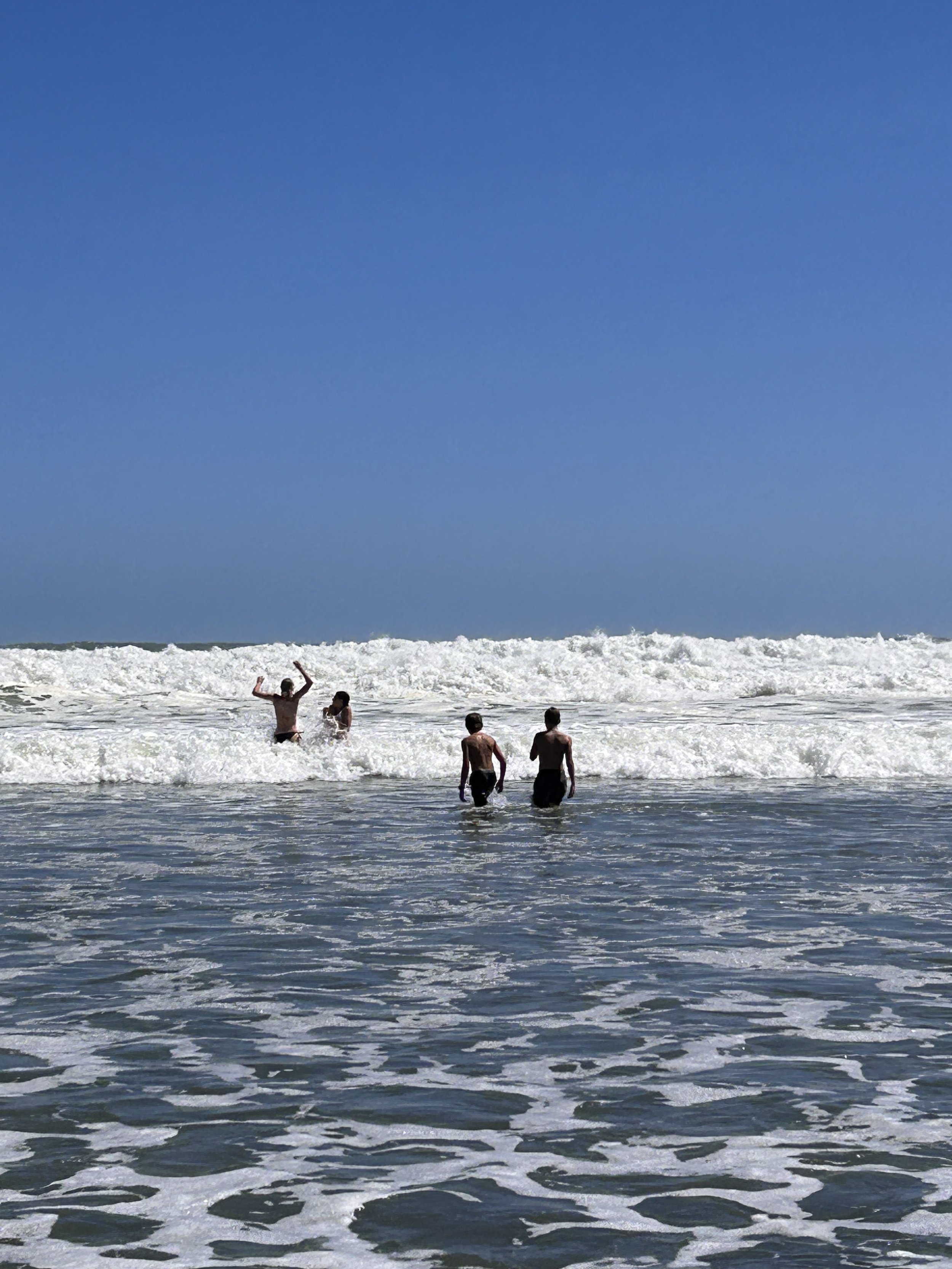
Our Kaupapa
Our Philosophy or Kaupapa is our way of doing things, and what we believe in. We live our strong values.
Our School Rules:
Safety first. Respect always. Environment matters.
-

RANGIMARIE
We seek to be at peace with self, other and the environment and explore the values of education for peace- with grace, generosity and gratitude.
-
WHAKAPAPA
We contribute to the Montessori education movement through furthering the work and legacy of Maria Montessori.
-

AKO
The adolescent / adult learner is central in our curriculum and so consciously we challenge conventional approaches to education – We continuously ask “What if…?”
-
WAIRUATANGA
We respect and acknowledge the dual heritage of the partners of Te Tiriti o Waitangi using Te Reo, and embrace the intent of the treaty to validate biculturalism in Aotearoa.
-

MANAAKITANGA
We recognise and show gratitude for the diversity of people from different ages, genders, cultures, nationalities, abilities, perspectives, and orientations; and acknowledge their contributions to our multicultural society.
-

TURANGAWAEWAE
We recognise our place and our time; here (location in Panmure and Constellation, Auckland, New Zealand) and now (21st century and beyond).
-

RANGATIRATANGA
We recognise and use the strengths of ourselves and each other in our community.
-

WHANAUNGATANGA
We are inspired by each other.
-

KOTAHITANGA
We cooperate with others in youth education and adult education.
-

UKAIPOTANGA
We maintain the highest standards of respect, dignity, nobility, trust, professionalism and integrity.
69 Kauri Road, Whenuapai.
Our peaceful Montessori primary Campus
Education for peace
61 Constellation Drive, our secondary Campus in Constellation, Rosedale
Education for peace
The purpose of Montessori education is the development of the New Human. This new human will be at peace with themselves, each other and the environment.
Montessori is widely respected and valued and while the movement is almost 120 years old, and is around the globe, the New Zealand Montessori movement is alive and strong as per these thoughts from Montessori Aotearoa New Zealand Montessori - Education for the future
Gandhi confirmed the wisdom of the Montessori method. The “more I came in touch” with these schools, said Gandhi, “I began to understand that the foundation was good and splendid,” that “children could be taught through the laws of nature—nature, consistent with human dignity, not nature that governs the beast. Ikeda
Further information can be gained by research into the work of Maria Montessori - for example AMI offers these quotes by Maria Montessori

Today, Montessori is the most widespread alternative to traditional education. There are thousands of Montessori schools across the globe where students practice daily life skills, learn through hands-on activities, and explore the interdisciplinary nature of science and social studies.
Two main tenets of a Montessori education are mixed-age classrooms and no grades or homework. At Montessori schools, children have long blocks of time—up to three hours at once—to freely interact with specially developed learning materials.
As children get older, they participate in extensive research projects, which they present to their class. At all ages, you won’t see rows of desks or assigned seats; students are welcome to move about classrooms freely and make choices about what to work on.
Psychology Today

We Promote Free Thinking
At Auckland Montessori College, our student-based approach offers an enriched learning environment that is highly conducive to academic excellence.
Our approach empowers students to delve deeply into subjects, allowing for a comprehensive understanding that often surpasses the scope of traditional educational settings. High-performing students find that they're not only encouraged, but also better equipped to excel in their academic pursuits. The self-directed nature of Montessori education nurtures critical thinking, problem-solving, and a genuine love for learning - skills that are crucial in higher education and beyond.
Our educational structure aligns seamlessly with New Zealand's NCEA qualifications.
When students feel prepared, they can choose to undertake NCEA exams with the full support and guidance of our dedicated staff.
Gandhi confirmed the wisdom of the Montessori method. The “more I came in touch” with these schools, said Gandhi, “I began to understand that the foundation was good and splendid,” that “children could be taught through the laws of nature—nature, consistent with human dignity, not nature that governs the beast.” (4) Gandhi correctly put his finger on the faith at the heart of Montessori’s vision for peace and education. For Montessori, the wars that damage our world are not the result of education that failed to teach children obedience—to tame the beast—but rather because of an obsession with it.
Ghandi wrote to Montessori “You have very truly remarked that if we are to reach real peace in this world and if we are to carry on a real war against war, we shall have to begin with children and if they will grow up in their natural innocence, we won’t have the struggle, we won’t have to pass fruitless idle resolutions, but we shall go from love to love and peace to peace, until at last all the corners of the world are covered with that peace and love for which, consciously or unconsciously, the whole world is hungering.’





